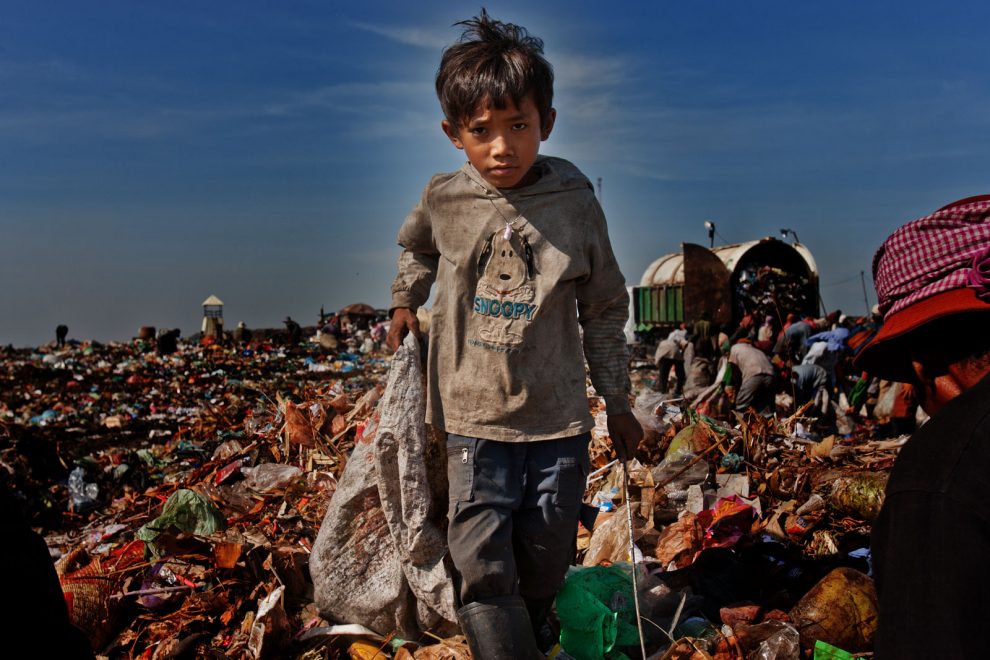Call for a Global Study: Children deprived of liberty
The indigent children are observed everywhere; alongside the roads, living in groups under some bridge or in a shady alley. The poor conditions in which they live in are indeed tragic. Like all the other children, they also deserve a good life, proper education and a healthy environment to grow in.
Undeterred by the various breakthrough in the assertion of the rights of children, the world is still a long way to go. The children are fleeced of liberty in many parts of the world. They are deemed invisible and are forgotten.
Such underprivileged children fall prey to crimes. The main reason behind this misfortune is that they are forced to live on the streets and in other cases, they are left unsupervised by any elder. They get involved in trafficking, organized crime, conflict situations and prostitution. Some of them get detained because of their mental health issues, drug abuse habits or seeking asylum status. The incarceration is decided by the immigration officials, welfare bodies, judicial authorities, police, military, non-state actors and child protection services. Most of the countries have a dearth of data on the children bereaved of liberty and the reasons. These children are involved in hostilities and are perceived as a threat to national security.
The increasing number of incidents surrounding these deprived children are growing every day, yet they remain invisible and forgotten. These children are victims of human rights violations all around the world. Incalculable children are placed in callous conditions where they are exposed to sexual assault, acts of torture, degrading punishments, rape and violence. Children are confined at a very younger age for longer period of times. This detention have disastrous impacts on their personal development. It causes immeasurable loss in their ability to lead healthy lives.
The affiliated financial costs to governments also tend to have a negative impact on national budgets, and can become a financial drain when approaches involving children are not utilised.
In order to address this situation, the United Nations (UN) General Assembly, by resolution 69/157, invited the UN Secretary-General to commission an in-depth global study on children deprived of liberty. On 25 October 2016, the Secretary General welcomed the selection of Manfred Nowak as Independent expert to lead the new global study on the situation of children deprived of liberty. By resolution 71/177 the General Assembly invited the independent expert to submit a final report at its seventy-third session in September 2018.
Features of Global Study:
The Global Study provided the suggestions for the solution of the problem of underprivileged children;
- Jotting down good practices and capture the views and experiences of children to inform the Global Study’s recommendations.
- Promote a change in stigmatizing attitudes and behavior towards children at risk or who are deprived of liberty.
- The magnitude of this denouement should be estimated as well as the total of children deprived of liberty ( in regard to all ages, ethnic, national and social origins, ages, disability and other grounds), as well as the reasons invoked, the root-causes, type and length of deprivation of liberty and places of detention.
- Procurement of advancements for law, policy and practice to safeguard the rights of children concerned, and thwart and notably reduce the number of children deprived of liberty through effective non-custodial alternatives, guided by the best interest of the child.
- All States parties are obliged to submit regular reports to the Committee on how the rights are being implemented. States must submit an initial report two years after acceding to the Convention and then periodic reports every five years. The Committee examines each report and addresses its concerns and recommendations to the State party in the form of “concluding observations”.
- The Committee on the Rights of the Child (CRC) is the body of 18 Independent experts that monitors implementation of the Convention on the Rights of the Child by its State parties. It also monitors implementation of two Optional Protocols to the Convention, on involvement of children in armed conflict (OPAC) and on sale of children, child prostitution and child pornography (OPSC). On 19 December 2011, the UN General Assembly approved a third Optional Protocol on a communications procedure (OPIC), which allow individual children to submit complaints regarding specific violations of their rights under the Convention and its first two optional protocols. The Protocol entered into force in April 2014.
- The Committee is also able to consider individual complaints alleging violations of the Convention on the Rights of the Child and its first two optional protocols (OPAC and OPSC) by States parties to the OPIC, as well as to carry out inquiries into allegations of grave or systematic violations of rights under the Convention and its two optional protocols.
- The Committee also reviews the initial reports which must be submitted by States who have acceded to the first two Optional Protocols to the Convention, on involvement of children in armed conflict and on sale of children, child prostitution and child pornography.
- The Committee hold regular meetings in Geneva and normally conducts three sessions per year consisting of a three-week plenary and a one-week pre-sessional working group. 2010 was the year when the Committee considered reports in two parallel chambers of 9 members each, “as an exceptional and temporary measure”, in order to clear the backlog of reports.
- The Committee also publishes its interpretation of the content of human rights provisions, known as general comments on thematic issues and organizes days of general discussion.
The deprivation of the rights of children is a global concern. UN has conducted a comprehensive study to grant their rights. Every child deserves to live freely and in a secure environment. All the countries must cooperate to eradicate this serious issue.











